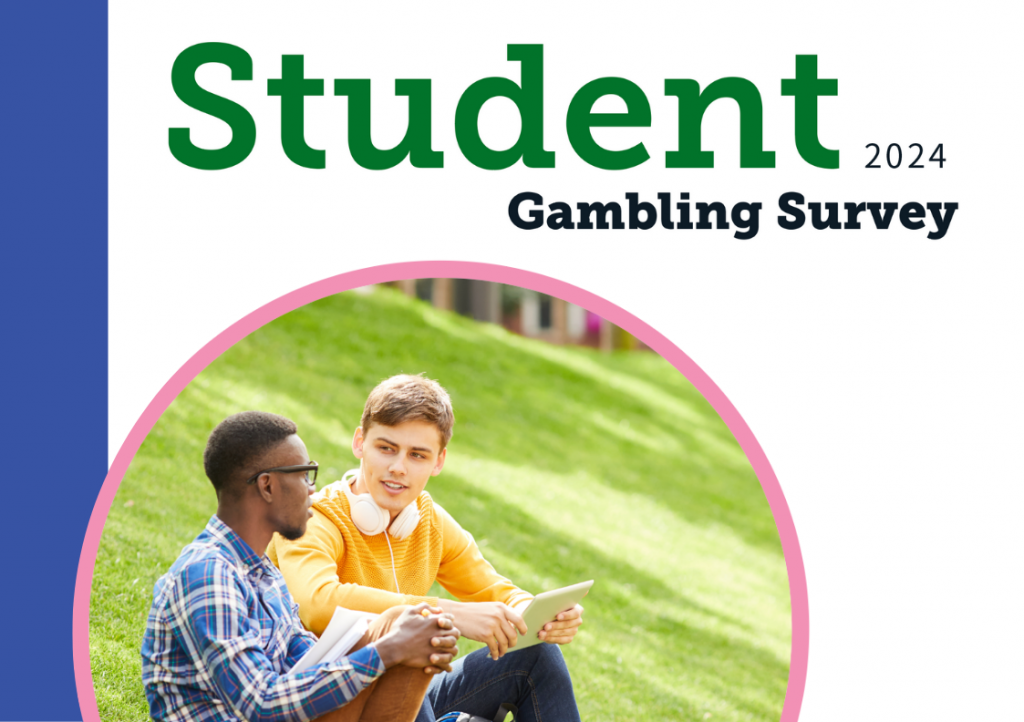London, 11 March 2024: Nearly half of university students who gamble say they are gambling more than they can afford during the ongoing cost of living crisis, the latest Annual Student Gambling Survey has revealed.
The third instalment of this research, jointly commissioned by Ygam and GAMSTOP, revealed that the majority of students (60%) had gambled in the previous 12 months. This figure had decreased from 71% compared to last year.
The survey, conducted by Censuswide, polled 2,000 students across the UK. It revealed that 46% of student gamblers reported that gambling had impacted their university experience. This included missing study deadlines and social activities, as well as adding pressure to cover basic expenses such as food.
Although the amount spent on gambling is relatively similar in each of the age groups, there is a trend towards males spending more, on average, than females. Spend was defined as the overall amount a student staked and lost, subtracting any wins. The survey showed that student gamblers lost £35.25 a week on average, equating to £1833 annually. 15% of student gamblers are losing of £50 or more per week to gambling. To fund their gambling, 32% are dipping into their savings, 23% are using their student loan, 10% are using money from their parents and, concerningly, 8% are using their overdraft.
The study incorporates the Problem Gambling Severity Index (PGSI) to measure at-risk gambling behaviour. It revealed that the proportion of student gamblers classified as being at ‘moderate risk’ remained consistent with last year’s findings at 28%. However, there was a slight decrease in the percentage of students classified as ‘problem gamblers’, from 24% last year to 21% this year.
The most common gambling activity for male students was ‘Online Sports Betting’. The most common gambling activity for female students was the ‘National Lottery’.
Friends remain the biggest influence on student gambling (34%), followed closely by sports events (26%) and social media (25%). This demonstrates the need to educate young people on safer gambling habits. Four out of ten have been criticised by other people for their gambling or have been told they are gambling too much and more than half admit feeling guilty about their gambling.
Over the past 12 months GAMSTOP and Ygam have visited more than 30 university campuses across the UK to raise awareness of gambling harms among students and the support that is available. Ygam has also delivered training to university and student union staff. Reassuringly, 60% of students say they feel comfortable accessing university gambling support – an increase on last year.
The percentage of students who reported investing in cryptocurrency had declined, with 32% indicating they had done so, compared to 40% in last year’s findings.
78% of all students stated that they play video games. Video game participation was higher in males (86%) than females (69%). Of those who play video games, 70% had paid for a random chance purchase in the past. Although non-gamblers were less likely to have paid for a random chance purchase, the majority had done so (59%).
When asked whether random chance purchases qualified as a form of gambling, 51% of students agreed that random chance purchases were gambling, 19% disagreed, and 20% neither agreed nor disagreed.
Stuart Andrew MP, Gambling Minister said: “Whilst millions of people gamble safely and without harm, we know that young adults can be more vulnerable to gambling related harms, which is why we recently introduced online slot limits specifically for 18-24 year olds.
“Alongside this, we are introducing a host of measures this year that will better protect young people from gambling harms, including financial risk checks, tighter controls on advertising, and marketing and a statutory levy on gambling operators.”
Dr Jane Rigbye, Chief Executive Office at Ygam, said: “Since last year’s report, students have faced increased financial strain amidst the ongoing cost of living crisis. Despite a notable decrease in gambling participation rates among students over the past three years, problem gambling prevalence rates remain stable, significantly higher than those in the general population. We know the multifaceted harms associated with gambling extend beyond financial implications, and any level of harm is unacceptable.
With gambling seemingly entrenched in university culture and participated in by the majority of students, the importance of our educational programmes with students and universities cannot be overstated. There is a growing demand for our training and resources from universities that recognise the necessity of implementing harm prevention measures. We encourage all those working in university settings to work to implement harm prevention strategies on campus, and we are ready to support them to do this effectively.”
Kellie McAlonan, Chair of NASMA (National Association of Student Money Advisers), said: “It is concerning to see the extent to which students are impacted by gambling. It is more important than ever that Student Money Advisers are appropriately educated to best support students, and to contribute to harm prevention measures. Ygam’s education programmes are integral to this.
“NASMAs National Student Money Week 2024, where the theme was ‘Less Risk, More Reward’, provides a platform to raise awareness of, and openly discuss, the risks of gambling and gambling harms with students on campuses across the country. With many student funding packages falling short of the cost of living, and seeing the findings of this survey, we know that our sector needs to take every opportunity to raise awareness and address these concerns with students, and Ygam are essential to helping us do this.”
Fiona Palmer, CEO of GAMSTOP, said: “This is the third year that we have run research and insights into the student gambling landscape, which underpins our Gambling Support University Tour, educating students about gambling risk and signposting them to support.
We have seen a significant spike in the number of young people registering for self-exclusion, with 16-24-year-olds making up around in one in four of GAMSTOP registrants, and this shows the importance of educating them about risk before they develop a problem.”
You can read the full report here:



